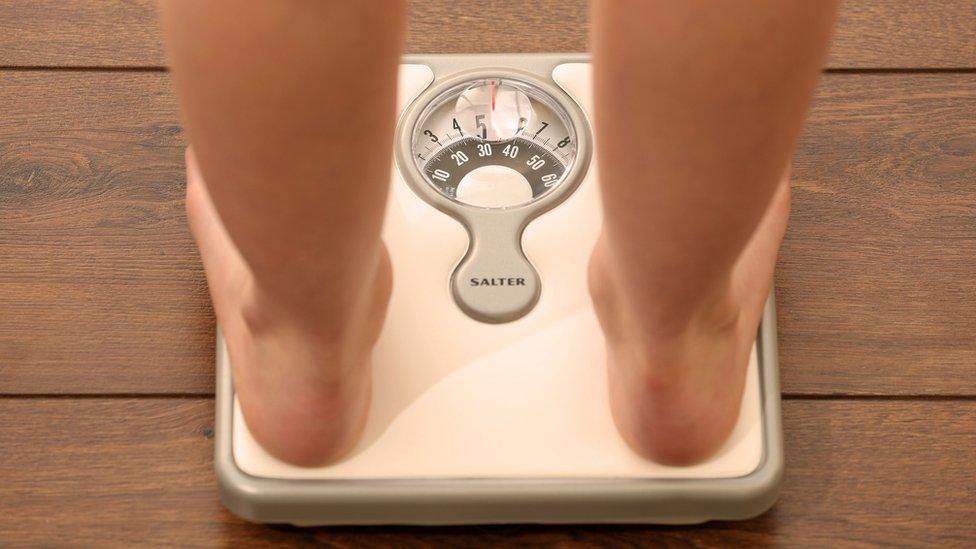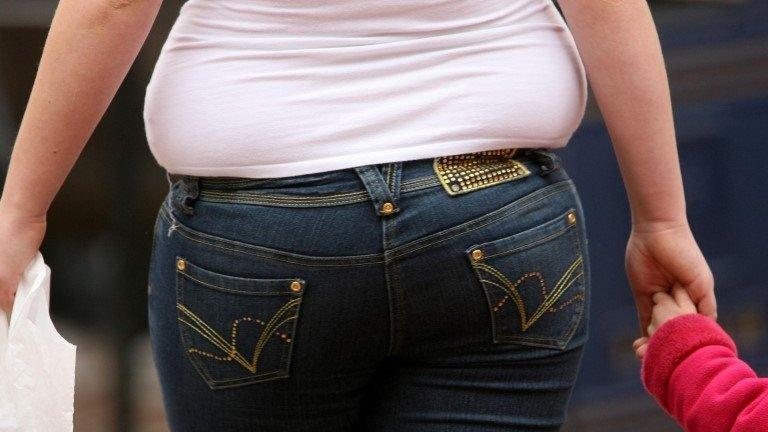Deprived children twice as likely to be obese
- Published

Children from the most deprived areas were twice as likely to be obese
Scotland's poorest children are increasingly likely to be obese, while those in affluent areas are not, a new NHS Scotland report has found.
The rate of children starting school in danger of becoming obese was 7% in the most affluent areas, but nearly double that at 13% for the least wealthy.
Overall, NHS Health Scotland said that 29% of women and 28% of men aged 18-64 in Scotland were obese.
The level of obesity among Scots has remained largely stable since 2008.
The research, which used the most recent figures from 2015-16, found that adults living in the least-deprived areas of Scotland had the lowest obesity levels.
However, people living in Scotland's most-deprived communities were more likely to be obese, according to the research.
'Consequences of obesity'
For men, those in all other areas were broadly similar, but for women obesity became progressively more common as the deprivation level increased.
The proportion of overweight women in Scotland almost doubled over 20 years - from 31% in 1995 to 60% in 2015, the report found.
In the same period, the level of overweight men jumped to 66%.
The report concluded that "actions to reduce the 'obesogenic' environment were urgently needed if the long term health, social and inequality consequences of obesity were to be reduced."

The report's authors cited the availability of high-fat high-sugar food as a contributing factor for obesity
Researchers recommend a similar approach to tackling Scotland's alcohol problem by focusing simultaneously on both the most severe cases and population as a whole.
Elaine Tod, who helped author the report, said: "Obesity used to be more common amongst the richer in society as it was only those who could afford to eat well who became obese.
"This trend has reversed and we now see higher rates of obesity in those who are less well-off.
"The reasons for this are complex and multi-factorial, including the affordability and availability of high-fat, high-sugar food in comparison with healthy food and the increasing popularity of more sedentary pastimes.
"What is clear is that action, including structural change at a societal level that does not require individuals to 'opt-in', is needed to achieve both a population-wide decrease in obesity in Scotland and to prevent health inequalities associated with obesity widening further."
'Food environment'
Lorraine Tulloch, programme lead at Obesity Action Scotland, said: "This report clearly outlines that the most-deprived in our society are suffering the greatest burden of obesity.
"It also highlights that by focusing on [the] actions [that] individuals can take, only worsens the inequalities gap.
"If we want to ensure we tackle the gap, we need to see bold, ambitious action to change the food environment around us to ensure the healthy choice is the easy choice for everyone."
Heather Peace, head of nutrition science and policy at Food Standards Scotland, added: "This report adds to the mounting body of evidence showing that little progress has been made towards improving the Scottish diet for the last 20 years.
"There is an urgent need for us all to take action - government, industry, the media and individuals all have a part to play."
The research was published in the International Journal for Equity in Health.
- Published11 October 2016

- Published7 January 2015

- Published6 July 2014
